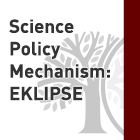Institute of Life, Earth and Environment (ILEE) - Universite de Namur
 |
|---|
WebsiteContacts |
Life is in constant evolution, particularly in a rapidly changing environment. At ILEE, we study the evolution of organisms, human populations, natural and agro-ecosystems. Thereby, we aim at a better understanding of the fundamental biological processes that regulate life on earth. We investigate anthropogenic pressures on the environment, including historical and socio-economic aspects. We further search for sustainable alternatives to manage natural resources, to reduce pollution, to conserve and restore biodiversity.
A strong asset of ILEE is its combination of multiple disciplines, offering completely new insights and multidisciplinary approaches on interactions of organisms, species, and ecosystems being exposed to anthropogenic impacts. These range from “classical” life sciences such as biology, geography, geology, chemistry, and physics to social science disciplines such as architecture, art, environmental history, and law.
ILEE research topics include:
- Evolution, adaptation, and biodiversity
- Pollution and environmental toxicology
- Natural resources characterization and management
- Ecosystem services
- Sustainable plant and animal production
- Environmental impacts on human populations
- Environmental history and law
- Environmental and natural resources management in the South
For further information, see: http://ilee.unamur.be/
Recent Publications:
- Vray S, Rollin O, Rasmont P, Dufrêne M, Michez D, Dendoncker N. 2019. A century of local changes in bumblebee communities and landscape composition in Belgium. Journal of Insect Conservation. DOI: 10.1007/s10841-019-00139-9.
- Kraemer MUG, Reiner RC, Brady OJ, ..., Linard C, .... 2019. Past and future spread of the arbovirus vectors Aedes aegypti and Aedes albopictus. Nature Microbiology:1. DOI: 10.1038/s41564-019-0376-y.
- Brousse O, Georganos S, Demuzere M, Vanhuysse S, Wouters H, Wolff E, Linard C, van Lipzig NP-M, Dujardin S. 2019. Using Local Climate Zones in Sub-Saharan Africa to tackle urban health issues. Urban Climate 27:227–242. DOI: 10.1016/j.uclim.2018.12.004.







